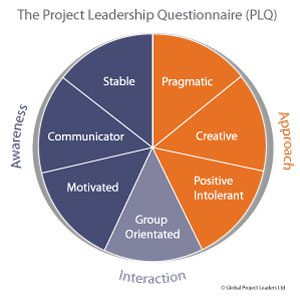For those starting out on a career as a project manager – or maybe considering a career change into project management – there are a few things to know to get off to the best start. Below is a useful beginner’s guide to becoming a project manager, listing some of the main attributes required and what’s involved in this career choice. Bear in mind that this is now a chartered profession in the UK so you will almost certainly need to study for some professional project management certification during your career to progress to the most senior levels. Keep reading to learn more.
What Traits Are Needed To Be A Project Manager?
Project managers need to be highly organised and equipped with good planning skills. As project management jobs can very often be fast-paced and demanding, a cool and calm head under pressure is needed. Strong communication and leadership skills are also essential, as well as the confidence to oversee a large team of people and delegate tasks. Project managers have to frequently be able to provide solutions quickly and efficiently to problems that arise, so the ability to be a quick-thinker and enjoy problem-solving are also needed. The ability to motivate others and lead by example will stand a person in good stead as a project manager, helping them to thrive in their own work and help others to do the same.
Compiling Reports
Project managers are responsible for compiling reports for the projects they have been working on for the company. The ability to create a clear and detailed report is a skill all project managers will need to develop. Some of the things that can help to make a report better include merging multiple PDF files to make them easier to link together, only using relevant graphs and charts to present data, and making sure all the necessary information is listed in a logical way that’s easy to read. Feedback opportunities should also be given to allow future improvements to reports that present data in a better format.
Setting Goals and Targets
Project managers are responsible for ensuring that a team and the company as a whole is able to reach set targets and goals. However, they are also responsible for setting out the aims for targets in the first place. Project managers need to be good at identifying the ways in which a company or team can improve its performance and what its goals and targets need to be. They will then need to be able to motivate their team to achieve these targets and guide them in the actions that need to be taken to get there.
Overseeing a Team
For those that are new to project management, overseeing and leading a team of people could initially feel uncomfortable and unknown. When starting out as a project manager, it can be helpful to build on confidence and leadership skills and undertake further training if necessary. This can help new project managers to feel more comfortable in their role, delegating tasks, and dealing with fellow team members. It can also be helpful to learn how to handle workplace disputes and the process to follow should one arise. This will help to prevent projects from being affected by a lack of teamwork and communication.



